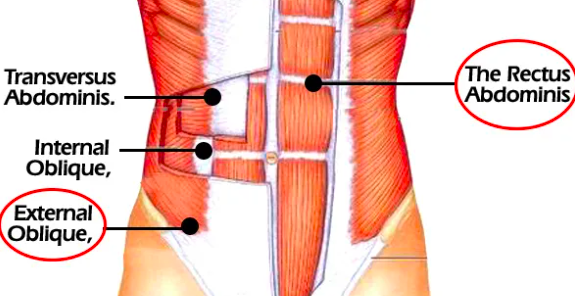Building a strong core
There are thousands of different “Core” exercises and workouts out there, it can be hard to understand what’s actually beneficial.
Let us help you.
Firstly, let’s gain a better understanding of what the “Core” is.
To keep it simple, the core is made up of 4 muscles that are located between the ribcage and pelvis.
From superficial to deep these muscles are;
Rectus Abdominis
External Obliques
Internal Obliques
Transverse Abdominis
Now that we know the muscles that make up the core musculature.
Let's have a look at what the core actually does.
The core’s primary function is stabilising the trunk and resisting movement. These movements include;
Extension
Flexion
Lateral Flexion
Rotation
This stabilisation of the trunk allows and provides the body with a stable base to then produce movement.
To help understand why trunk stabilisation is important I remind myself that proximal stiffness leads to distal athleticism. This means that if the trunk is stable then we have a strong base for our limbs (arms and legs) to produce athletic and powerful movements.
The secondary function of the core is to produce movement. These movements include;
Flexion
Lateral Flexion
Rotation
However, if we can not correctly stabilise our core then we will not be able to take full advantage of these movements.
The following 3 exercises are my go-to core exercises to help stabilise the trunk.
The plank is a fantastic anti-extension exercise. This means that we will resist moving into extension, this, in turn, means we are resisting moving into flexion.
A couple of key points;
Drive elbows into the ground (Round Upper Back)
Pull ribs down
Tuck tailbone under (Pull belt buckle to belly button)
Squeeze Glutes
The side plank is a fantastic anti-flexion exercise and resists that sideways movement.
A couple of key points;
Elbow under shoulder
A straight line from bottom armpit through to ankle
Ribs down and tailbone under
Squeeze Glutes
The Pallof group of exercises are fantastic anti-rotation exercises. I personally like setting up in a half kneeling position, as it takes the lower body out of the movement. Allowing us to express true anti-rotation.
A couple of key points;
The knee furthest away from the anchor is up
Ribs down and tailbone under
Elbows locked out
Hands in line with the middle of the chest
I like 3 sets of 5 deep breaths for all 3 of these exercises.
Once this starts becoming easy, we can add a pause at the end of the inhale.
Final Word
And there you go! A quick core overview.
If you want to work on your core stabilisation then add one of these exercises to the end of your sessions.
I would start with your anti-extension exercises. Become strong here before progressing to anti-lateral flexion before finishing off with anti-rotation.

